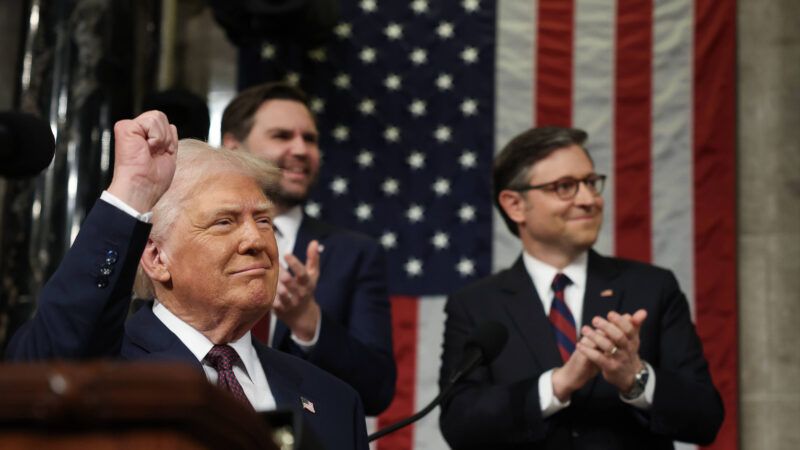The 'Big Beautiful Bill' Will Add $2.4 Trillion to the Deficit
That total will rise to about $3 trillion once the interest costs of more borrowing are included.

In March, President Donald Trump stood before a joint session of Congress and vowed to "do what has not been done in 24 years: balance the federal budget."
The first major legislative package of Trump's second term, however, will throw the federal budget farther out of balance, the Congressional Budget Office (CBO) concluded in an updated assessment of the bill.
The CBO estimates that the One Big Beautiful Bill Act, which cleared the House late last month and is awaiting a vote in the Senate, will increase deficits by $2.4 trillion over the next 10 years. The bill will reduce tax collections by an estimated $3.75 trillion over that period, while reducing government spending by an estimated $1.3 trillion.
The budget deficit is the gap between how much the federal government spends and how much tax revenue it collects in a single year. If spending is higher than revenue—as has been the case in every single year since 2001—then the government must borrow to fill in the gap.
The "Big Beautiful Bill" will, in effect, force the federal government to borrow more heavily in the future. And all that extra borrowing comes with more costs, since interest must be paid. The Committee for a Responsible Federal Budget, a nonprofit that advocates for reducing the deficit, estimates that the bill will add about $3 trillion to the deficit once interest costs are included in the calculation. The bill would also double the federal government's interest payments from nearly $900 billion in 2024 to $1.8 trillion by 2034, the group estimates.
The bill's actual impact on the deficit is likely to be even larger than what the CBO estimates, due to several provisions that are meant to game the number-crunching agency's scoring process. Several of the tax breaks in the bill—such as the higher standard deduction, an expanded child tax credit, and tax exemptions for tips and overtime pay—are temporary and will expire by 2029. But those policies are clearly not meant to be temporary, and if extended, they would further widen the deficit in 2030 and beyond.
The extension of the 2017 income tax cuts is essential to avoid a massive tax hike that would hit nearly all American households. And many of the spending cuts included in the bill—such as new work requirements for Medicaid and food stamps—are worthwhile efforts.
But the problem with the bill, as the CBO's report outlines in stark terms, is that the spending cuts and tax cuts do not offset one another. That would be an imprudent decision even if the federal government was not deep in debt and already on course to see borrowing increase in future years. Given its current fiscal situation, piling more borrowing costs on future American taxpayers seems utterly foolish.
Could revenue from tariffs help to offset the budgetary impact of the tax bill? The CBO released an assessment of Trump's tariffs on Wednesday showing that those higher taxes on imports would reduce the budget deficit by about $2.8 trillion over the next decade. In a statement, the White House touted that report as proving that Trump's policies, as a whole, would reduce rather than expand the budget deficit.
The first problem with that is that those tariffs might not remain in place long enough to matter. They have been in constant flux for months as Trump has raised, lowered, paused, and altered them on a nearly weekly basis. Two federal courts have also ruled that the tariffs were unlawfully imposed—and if those decisions are affirmed on appeal, then the tariff revenue could vanish entirely. (The CBO's assessment did not take into account the court rulings or any changes made to the tariffs since May 13.)
The other problem is that the White House is effectively admitting that its tariff policies will offset the economic benefits of the tax cuts it is trying to pass through Congress—which the White House is also arguing will boost economic growth.
In short, the Trump administration is trying to have its tax cuts and eat them too. Here's a better plan: Draft a tax bill that doesn't add to the deficit, so that the tariffs don't need to be a part of the picture at all.


Show Comments (88)